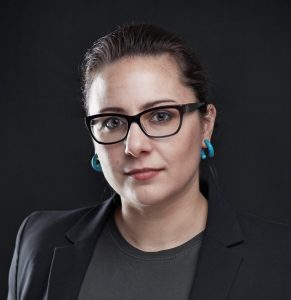The research by a team that includes Jennifer Carroll, assistant professor of anthropology, looks at how the disruption of relationships between users and dealers could raise the overdose risk for users.
Assistant Professor of Anthropology Jennifer Carroll has published new research providing insight into the relationships between dealers and users that could inform new ways to combat the opioid overdose epidemic.

Carroll, a medical anthropologist, has co-authored an article titled “The protective effect of trusted dealers against opioid overdose in the U.S.” that appears in the most recent volume of International Journal of Drug Policy. Carroll worked with Dr. Josiah Rich, professor of medicine and epidemiology at Brown University and director of the Center for Prisoner Health and Human Rights; and Traci Green, associate professor of epidemiology at Brown University and director of the Opioid Policy Research Collaborative at Brandeis, on the research and resulting article.
Carroll and her colleagues found that the types of relationships between those who use opioids and their suppliers can strongly influence the level of overdose risk the user is exposed to. More specifically, the study found that many users experienced overdoses after turning to a non-trusted dealer, a finding that can influence strategies designed to help reduce the number of overdose deaths in the country each year.
“We do our best job of serving the public interest by responding to the drug market as it exists, and not as we imagine it exists,” Carroll said.
Carroll notes that the research underscores how the opioid overdose epidemic is shaped by how those who use and supply relate to one another and the impact of focusing on taking dealers off the streets.
“From a policy standpoint, we need to understand that folks who supply are a key part of the quality control systems that people who use drugs frequently rely on to stay safe, so taking a dealer off the streets is not necessarily going to help,” said Carroll, who has conducted extensive research into the opioid crisis, both domestically and internationally. “No drug is risk-free, but if we want to keep people safe, we need to recognize the things that people are doing to keep themselves safe, and not disrupt that.”
As the researchers note in the article, opioid overdose has become the leading cause of death among adults between 25 and 54 years old in the U.S. Among the drivers of that rise is rising prevalence in the opioid drug market of fentanyl, a powerful synthetic opioid that is increasingly being mixed with heroin and sold to users. The article notes that by 2017, 47,600 opioid overdose deaths were identified in the U.S., more than 28,000 of which involved synthetic opioids like fentanyl, according to the Centers for Disease Control & Prevention.
The research by Carroll and her colleagues is built upon interviews with nearly 100 individuals in the Providence, Rhode Island, area who were illegally using opioids, with each asked questions about their substance use behavior, past experiences with overdose and their thoughts about why overdoses occurred. Of particular interest to Carroll and her fellow researchers was the relationship these individuals had with those who sold them opioids, and how that relationship might have impacted their likelihood of overdose or unintentional exposure to fentanyl.
The study found that for many of the users interviewed, maintaining a long-term relationship with trusted dealers is a key strategy to reducing the risk of being harmed by their substance use. Many reported relationships with dealers who were guided by “the goals of consumer protection” such as refusing to sell fentanyl or assuring its absence from their product, testing for the presence of fentanyl, having naloxone on hand to help reverse an overdose and other practices.
“In other words, some people who use opioids maintain generally positive relationships with their dealers, and those relationships appear to be protective against overdose as well as conducive to safer substance use behaviors,” the article said.
These findings offer support for the idea that “arresting a dealer may directly contribute to overdose within their client population,” the article states. The researchers point specifically to the movement among states to pass “drug-induced homicide laws” that can impose stiff prison sentences for those who distribute illegal substances that lead to a fatal overdose.
“Drug induced homicide laws should, therefore, be thought of not as deterrence strategies but as selective pressures that change the shape of the drug market,” the researchers write. “For individuals who rely on trusted suppliers for survival in an increasingly deadly drug market, this market pressures produced by this law — ostensibly enacted in their name — may simply serve to disrupt the one lifeline they currently have.”
The new article extends Carroll’s extensive research into the dynamics of the global opioid epidemic. In 2019, Carroll received multiple recognitions for her study of the impact of banning methadone, commonly used to address opioid addiction, in occupied Crimea. Earlier this month, Carroll and Taleed El-Sabawi, assistant professor at Elon Law, were selected to serve as an independent investigator and research mentor, respectively, in a research training program funded by the National Institute on Drug Abuse and the Justice Community Opioid Intervention Network Coordinating and Translational Center.


